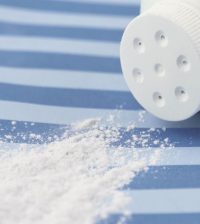- Could You Spot the Silent Symptoms of Stress?
- Gas Stoves Could Leave Your Lungs Vulnerable to Nitrogen Dioxide
- Key Therapy Equally Effective for Women, Men With Narrowed Leg Arteries
- Doctors Describe Texas Dairy Farm Worker’s Case of Bird Flu
- Does Preschool Boost Kids’ Long-Term Academic Success? Study Finds Mixed Results
- AI Might Spot Rare Diseases in Patients Years Earlier
- An Orangutan Healed Himself With Medicinal Plant
- Quit-Smoking Meds Not Working for You? Try Upping the Dose
- Fewer Americans Are Suffering Most Dangerous Form of Heart Attack
- Even Skipping Meat for One Meal Helps Liver Disease Patients
Steroids May Not Be Wise Choice for Intensive-Care Patients


Intensive-care unit patients who receive steroids seem to be at greater risk of developing delirium, according to a new study by Johns Hopkins researchers.
Steroids are given to ICU patients for a number of reasons, including to reduce inflammation and to treat septic shock, the study authors said.
The researchers examined the medical records of 330 lung injury patients who were on ventilators in intensive-care units of four Baltimore hospitals between 2004 and 2007. Patients were 52 percent more likely to develop delirium if they’d received steroids the previous day.
Being older was also linked with an increased risk of delirium, which can cause poor memory and thinking, hallucinations, agitation and disorientation, the researchers said.
The study authors noted that delirium typically subsides after a few days. But previous research has shown that delirium in intensive-care unit patients can have lasting effects, including mental impairment equal to moderate brain injury or mild Alzheimer’s disease.
The study findings, published in the June issue of the journal Critical Care Medicine, suggest that limiting the use of steroids in intensive-care patients could reduce their risk of delirium.
“We need to be cautious in our use of steroids in critically ill patients and weigh the risks and benefits of using them,” study leader Dr. Dale Needham, an associate professor of medicine and of physical medicine and rehabilitation, said in a Hopkins news release.
“Sometimes they are necessary, but we need to be thoughtful about minimizing the dose and duration of steroid use when possible,” he added.
The study was supported, in part, by a grant from the U.S. National Institutes of Health’s National Heart, Lung, and Blood Institute.
More information
The U.S. National Library of Medicine has more on delirium.
Source: HealthDay
Copyright © 2024 HealthDay. All rights reserved.










